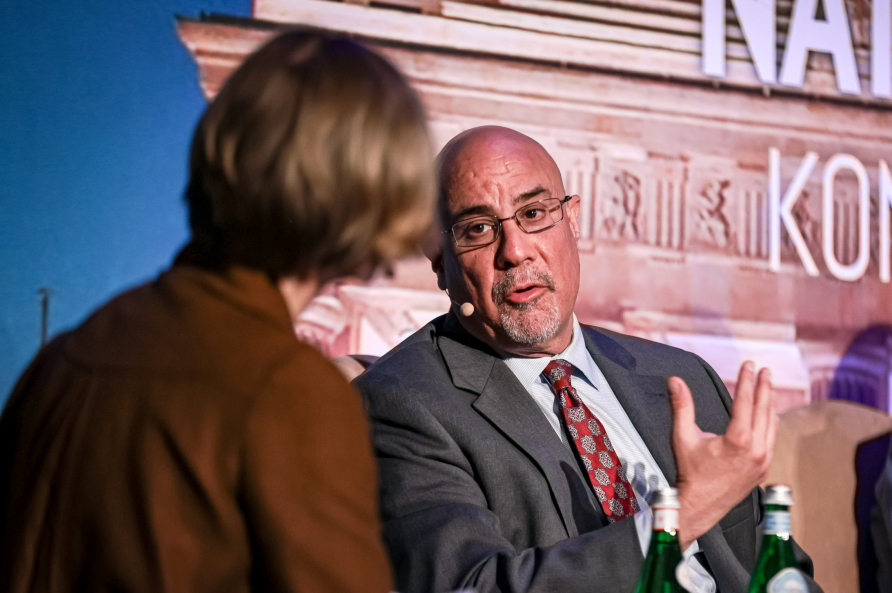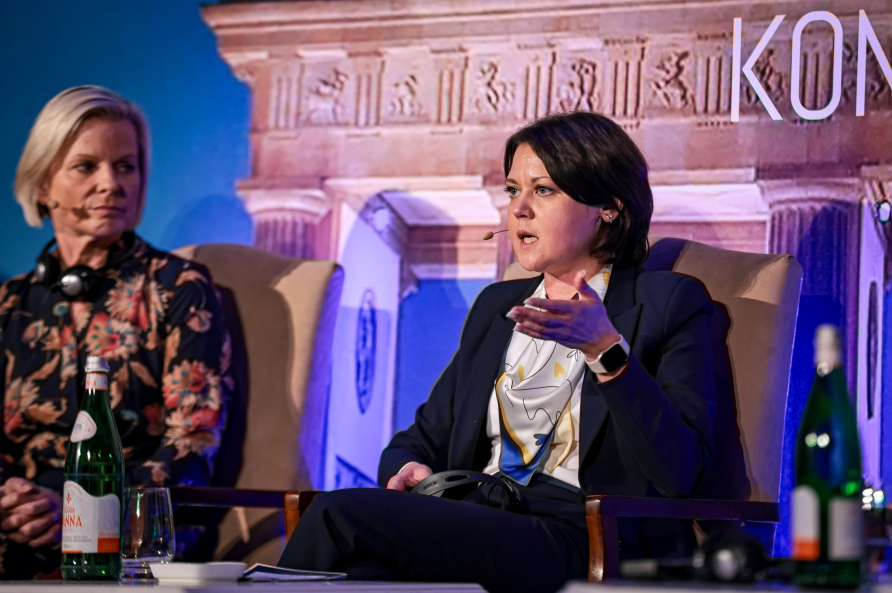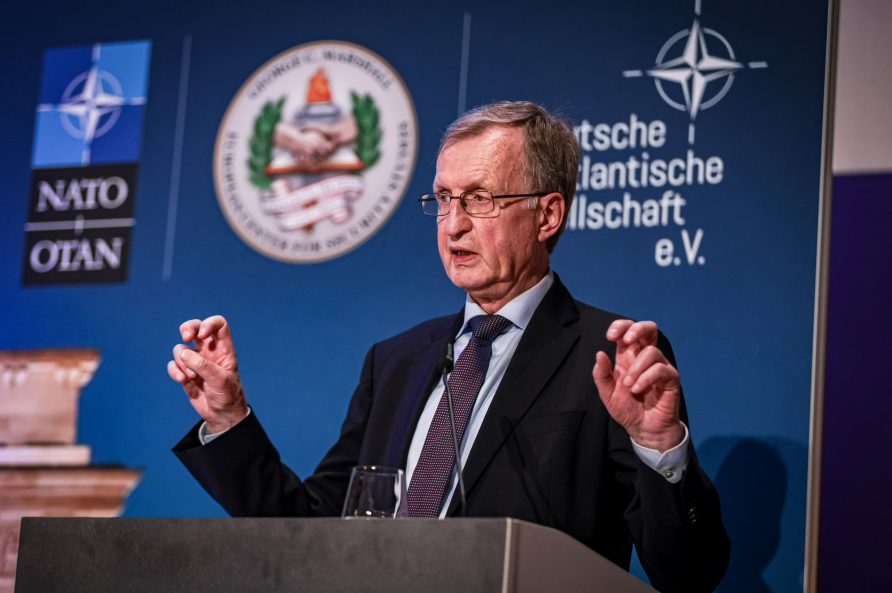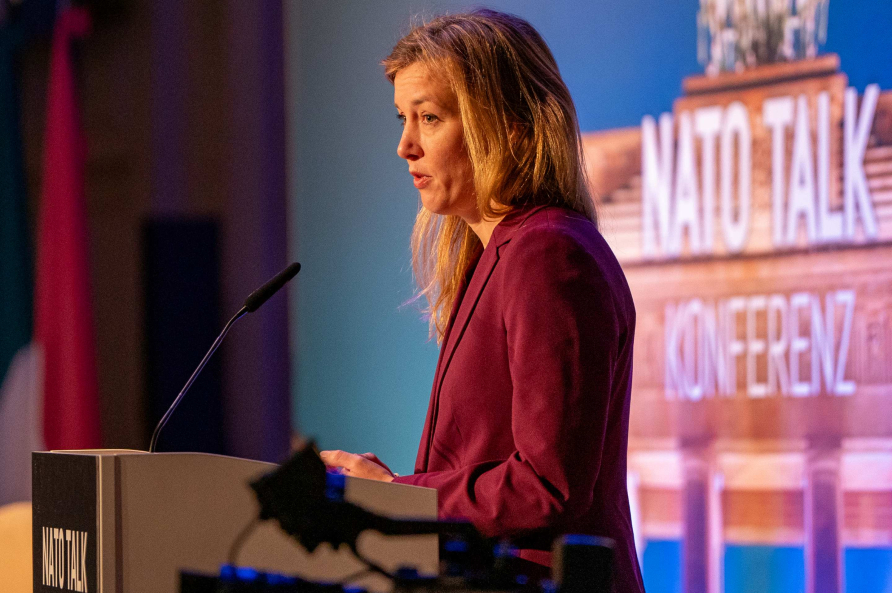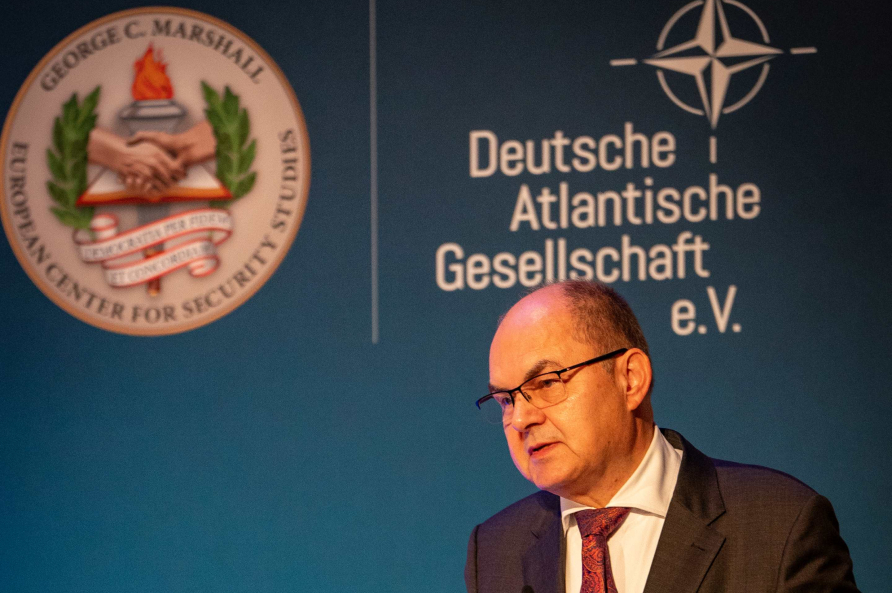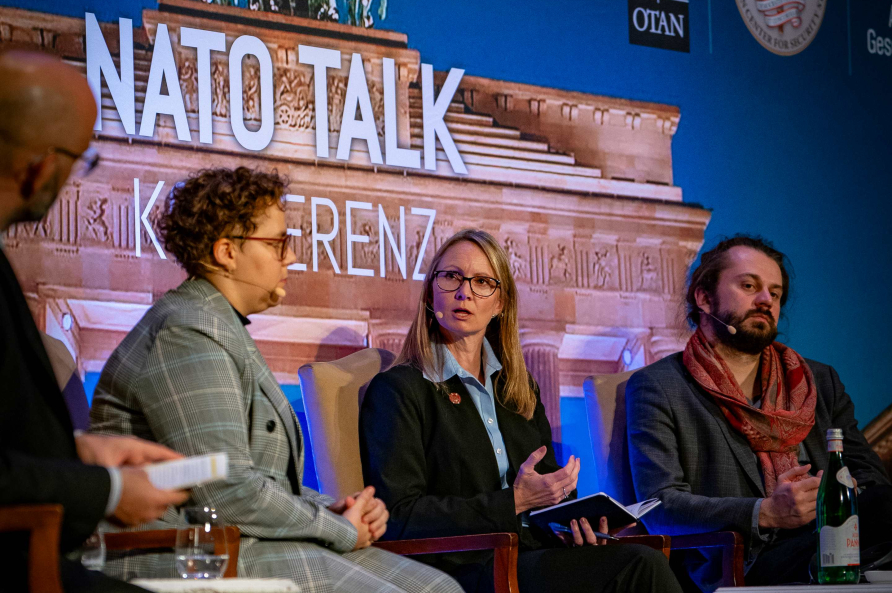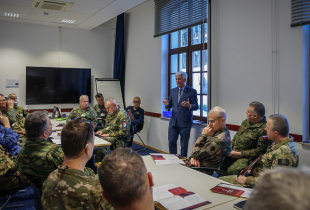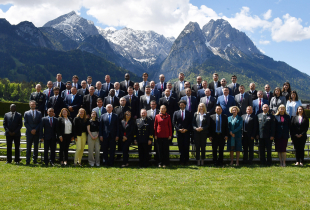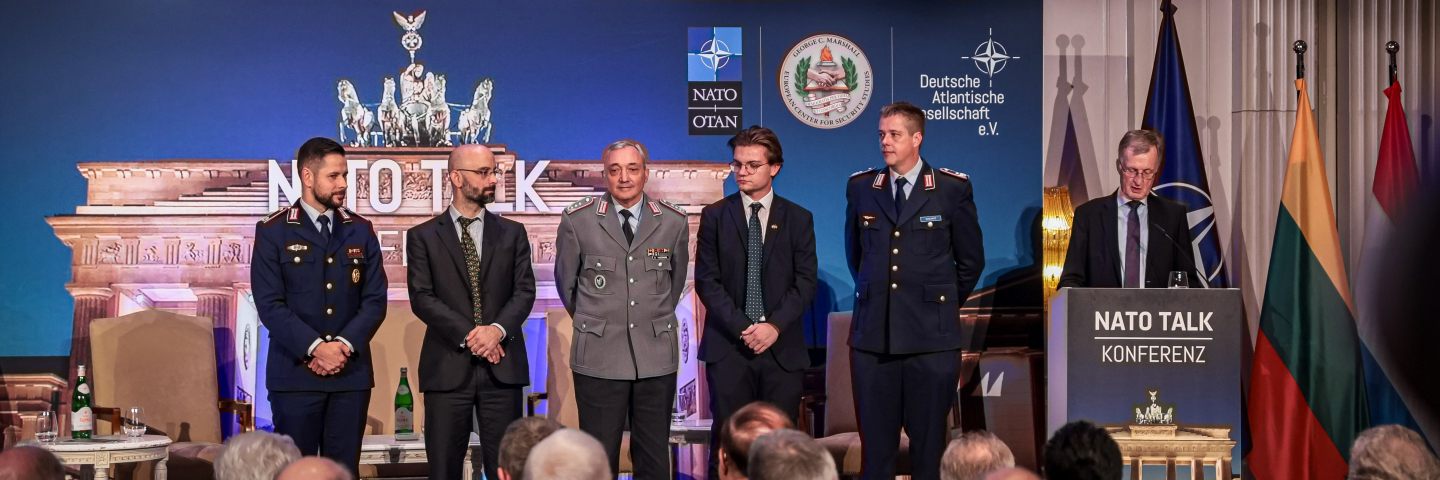
GCMC Co-hosts NATO Talk 2024 Alongside the German Atlantic Association
BERLIN (Nov. 7, 2024) – The George C. Marshall European Center for Security Studies co-hosted NATO Talk 2024 alongside the Deutsche Atlantische Gesellschaft, or the German Atlantic Association, for the second year in a row.
Leaders, policymakers, and experts came together near the historic Brandenburg Gate, Nov. 7 to discuss the most pressing strategic challenges and opportunities facing the transatlantic alliance in a rapidly changing world. Against the backdrop of a U.S. election held just two days prior, and the subsequent collapse of Germany’s coalition government the following day, the 2024 edition of the talks provided real-world, contemporary context to the agenda.
“I would like to welcome you here, it’s always good,” said Federal Minister (ret.) Christian Schmidt, High Representative for Bosnia and Herzegovina and President, German Atlantic Association. “The beginning of November has, in Germany, always been a point in time when new things have come up. A month full of surprises,” he said, stating it would be counterproductive to compare the changing situation in Germany and across the Atlantic with past talks. “We have now an opportunity for a readjustment this year; we are going to have interesting topics, excellent expert panels, but the keynote speech will … set the course for the whole day.
In her keynote address, Siemtje Möller, Parliamentary State Secretary at the German Ministry of Defense and Bundestag member, set the stage by emphasizing that it is time to step up.
“We have to strengthen NATO as a transatlantic alliance which stands for security in Europe. And we, from the German side, will have to take up more responsibility within Europe,” she said. “Europe must do more.”
Transatlantic Security Bond
While the overarching theme of the 2024 talks was ‘Global Politics in Transition - Europe and NATO after the U.S. Elections’, discussions covered a range of topics impacting transatlantic security. These topics included the ongoing war in Ukraine and the threat posed by Russia to the rest of Europe; the challenge of China and its growing global influence; and the sustained use of hybrid warfare by both China and Russia. The impact of an evolving European deterrence and defense posture on Germany and the Bundeswehr was also a focal point for discussions.
For the Marshall Center, it was a chance to represent its unique German-American partnership — a backbone of the transatlantic bond supported by both organizations, and one that has weathered significant changes over the years.
“It’s an honor and really a privilege to welcome you, and to partner once again with the Deutsche Atlantische Gasellschaft,” said Marshall Center Director retired Maj. Gen. Barre Seguin in his opening remarks. “When we do something one time, it’s an event, and when we do it twice, it’s a tradition.”
Recent history in terms of the global situation, he went on to explain, and discussions like NATO Talk which focus on the critical issues facing the transatlantic community and the security architecture of Europe, “are more important than ever.”
“While today’s discussion is meant to be a challenging one for us, and meant to try to get at the questions that guide us into the future in terms of our transatlantic relationship and our focus on NATO as being the backbone of our respective security, we do see some bright spots,” Seguin said, citing recent EU-oriented elections in Moldova as a sign of faltering Russian influence in the face of national resolve.
A History Steeped in Relevance
In 2008, German Chancellor Dr. Angela Merkel and NATO Secretary General Jaap de Hoop Scheffer opened the first "NATO Talk" of the German Atlantic Association at the same location. Since then, NATO Talk has developed into one of the most important security policy conferences in Germany.
Over the years, the German Atlantic Association has welcomed high-ranking guests, including NATO Secretaries General Anders Fogh Rasmussen and Jens Stoltenberg; Defense Ministers Annegret Kramp-Karrenbauer and Boris Pistorius; Vice-Chancellor of the Federal Republic of Germany Joschka Fischer; and Minister of State at the Federal Foreign Office Tobias Lindner. This year’s significant attendees included former German Ambassadors Dr. Emily Haber and Martin Erdmann, and former NATO Military Committee Chairman retired General Dr. h.c. Klaus Naumann.
The Marshall Center was represented by three panelists for the event: Dr. Bernard Finel, Dean, College of International Security Studies; Dr. Yevgeniya Gaber, Professor of Regional Security Studies; and Cmdr. Rachael Gosnell, Military Professor of Strategic Studies. The Körber Foundation, the European Council on Foreign Relations, the German Marshall Fund East, the Friedrich Naumann Foundation, the Atlantic Council, the Mercator Institute for China Studies, Codetekt, Deutsche Gesellschaft für Auswärtige Politik, NATO International Staff, and multiple journalists rounded out the panels.
At the conclusion of NATO Talk 2024, Seguin summarized the purpose of these crucial yearly dialogues. "Together we are stronger. Together, we can and we will address the complex security challenges of our time and work towards a safer, more secure world."
NATO Talk offers an annual platform for exchange on the latest developments in global security policy, with a special focus on transatlantic relations and the NATO alliance. Together with experts from politics, diplomacy, the military, academia and civil society, NATO Talk creates a forum for dialogue and dealing with current, and often controversial foreign and security policy issues, in order to promote the social debate on Europe's security and the future of the transatlantic partnership. For more on NATO Talk, or to learn about the German-Atlantic Association, visit https://ata-dag.de/ueber-uns/
The George C. Marshall European Center for Security Studies is one of six U.S. Department of Defense Regional Centers and the only bilateral Center. It is also the only regional center for the Federal Republic of Germany. An instrument of German-American cooperation, the center addresses regional and transnational security issues for the U.S. Department of Defense and German Federal Ministry of Defense, and maintains contact with a vast alumni network of security professionals.
